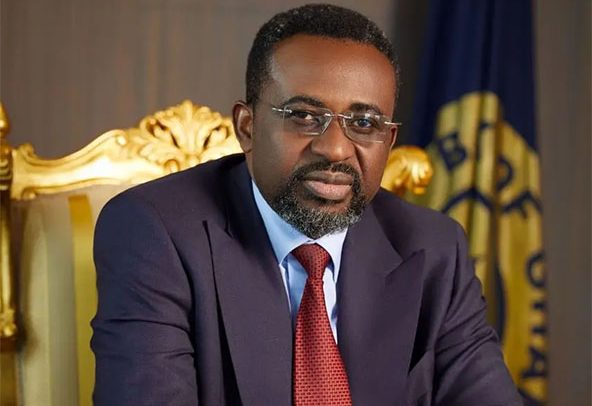Dr. Johnson Asiama
Latest report by the International Monetary Fund (IMF) has revealed that the Bank of Ghana (BoG) sold $1.4 billion in forex market in the first quarter of 2025.
The country’s report shows a sharp increase in the $1 billion the Bank injected in the forex market in 2023 rising further to $3 billion in 2024, with $2 billion sold in the fourth quarter in the lead up to the 2024 general election.
“The BoG’s footprint in the FX market continued to increase, with inflows reaching US$11 billion (up 42 percent from 2023) and FX sales (FXI) tripling to US$3 billion in 2024 (including US$2 billion in Q4). Large-scale FXI continued in 2025, reaching US$1.4 billion in Q1,” it noted.
The report revealed that the strong external sector along with repeated FXI contributed to a 60 percent nominal exchange rate appreciation against the US dollar between November 2024 and May 2025.
The report also disclosed that although 2024 growth was stronger than anticipated, staff lowered its 2025 growth projection to 4 percent on a larger negative fiscal impulse than previously anticipated and a tighter monetary policy showing a favourably macroeconomic outlook.
The IMF report stated that only three out of eleven structural benchmarks (SBs) due between January and May 2025 were met as some missed structural benchmarks were implemented with delay, attributing that to factors such as quarterly electricity tariff adjustments (quarterly SB starting from end-January 2025).
“This resumed only in April 2025 due to delays in appointing a new board of the energy sector regulator (PURC), while the publication of the audit of Electricity Company of Ghana (ECG)’s collections and uses (end-January 2025 SB) was achieved in February 2025 and covered a longer period than mandated by program conditionality,” it explained.
“The full integration of Ghana Electronic Procurement System (GHANEPS) with GIFMIS, an end-December 2024 structural benchmark, was achieved in May 2025. The authorities completed the forward-looking overarching restructuring plan for NIB in May (prior action) and the government has recapitalised NIB to ensure a non-negative Capital Adequacy Ratio (CAR) (prior action)—and to fully comply with the minimum CAR of 13 percent (without forbearance), ahead of the end-2025 timeline,” parts of the report read.
It further stated that the authorities have implemented ahead of schedule two end-September 2025 SBs: amending the fiscal responsibility framework and adopting a strategy to restructure Electricity Company of Ghana, including opening operations to private sector participation.
Parts of the report also mentioned that the Ministry of Finance (MoF) is implementing a multipronged strategy to address the causes and budgetary impact of 2024 fiscal slippages, envisaging short and medium-term measures building on the ongoing PFM reforms.
The short-term measures, it stated, included reversing new hires of civil servants and pausing unbudgeted projects originated by policy decisions from the previous administration, enacting a 2025 Budget consistent with a 1.5 percent of GDP in the fiscal primary balance (end-March 2025 SB) and enacting changes to the PFM and Public Procurement Acts to improve the fiscal responsibility framework (end-September 2025 SB).
By Ebenezer K. Amponsah


